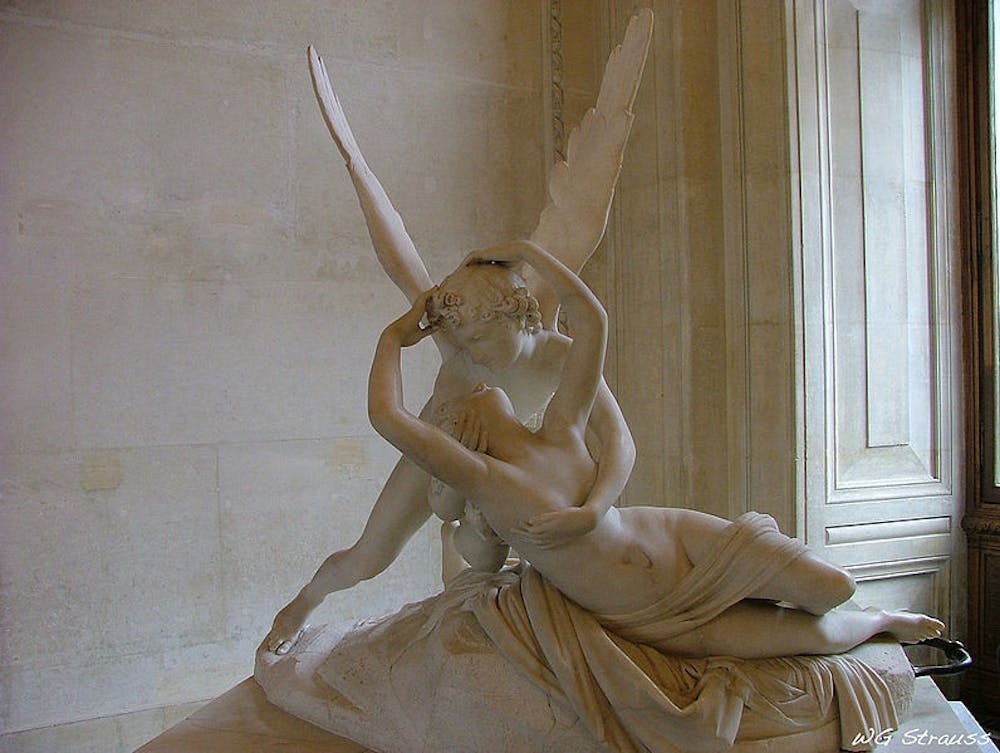
I finished The Song of Achilles by Madeline Miller yesterday. I began the book unsure of what to expect from a Greek myth adaptation, but by the end, I was in tears. In addition to evoking a sense of sadness, this beautiful and poignant story has reawakened my long-term interest in Greek mythology.
Stemming from early childhood visits to the library, Greek mythology has always fascinated me. I think I’m not alone in having a “myth phase” as a child, a period of time where one finds a deep interest in the legends and tales of some ancient culture, whether Greek, Egyptian, Norse or Mayan. As a kid, I always left the library with a tall stack of books, and more often than not, among my haul of novels and riddle collections would be some kind of Greek folklore anthology or another installation of Rick Riordan’s Percy Jackson series.
There is something deeply fascinating about a myth. The stories belong to ancient, dead religions and are often used to explain the phenomena of life. Myths live in a middle ground between abstraction and reality, where imagination devises clever mechanisms behind everyday occurrences like thunderstorms and volcanoes.
For instance, the Greeks used Hades’ kidnapping of Persephone to explain the seasons. Persephone’s mother, Demeter, is distraught at the loss of her daughter to the god of the Underworld, and as the goddess of agriculture, her mourning has catastrophic effects on the environment, resulting in the arrival of winter. Persephone is finally permitted to return to her mother, but because she has eaten food from the Underworld, she can only return for six months out of the year and must live with Hades as his queen for the other six. Thus half of the year is plentiful and warm (summer and spring), and the other half is barren and cold (winter and fall).
The myth of the kidnapping of Persephone was never my favorite, though. I was a much bigger fan of the stories involving Athena, goddess of wisdom and war. Her birth is a particularly interesting one.
Zeus marries the goddess Metis but is unwilling to have a child with her, fearing their offspring’s potential usurpation of his power. Thus when Metis becomes pregnant, he tricks her into transforming into a fly and swallows her. Problem solved, right? Unfortunately for Zeus, immortals are not easily killed. In Zeus’ head, Metis gives birth to a girl, Athena, and raises her. When Athena is fully grown, Zeus feels a terrible, skull-splitting migraine, and after cleaving his head open, out pops Athena fully grown.
This tale demonstrates the way the Greeks wove together the various symbols and narrative details of their myths. It is not a coincidence that Athena, the goddess of wisdom, is born from her father’s brain. While Athena is my favorite deity, my favorite tale overall is the romance of Eros and Psyche.
Psyche is a mortal girl whose beauty is so great that it attracts the attention of many admirers who neglect their worship to Aphrodite, goddess of beauty and love. In anger, Aphrodite sends her son Eros to make her fall in love with a monster with one of his magic arrows. Instead, Eros accidentally pricks himself with the arrow and falls in love with her himself.
Eventually, Psyche is taken to Eros to live with him in a beautiful, lavish house. Each night she meets him but is not permitted to see his true identity. Overcome by curiosity and fear of what he may be, Psyche waits one night for him to fall asleep and lifts a candle to his face. She is shocked to discover that he is the beautiful god Eros. A drop of hot wax drips onto him and wakes him, and he flees.
To see her lover again, Psyche must undergo trials at the hands of Aphrodite, involving tasks like sorting hundreds of seeds and journeying into the Underworld. At the end she makes a grave mistake that leaves her in a deep slumber, and the story seems to end like a tragedy. However, love is inseparable from the soul, and Eros finds Psyche. The two plead their case to Aphrodite and the other gods, who grant immortality to Psyche, allowing her to reunite with Eros for eternity.
As The Song of Achilles demonstrates, Greek myths don’t always end happily, so as a lover of happy endings, the romance of Eros and Psyche has always been dear to me. Their love represents the eternal union of heart and soul, a wonderful story that speaks to the kind of beauty Greek mythology can offer. From the tragic Song of Achilles to the idyllic Eros and Psyche, Greek myths can be strange and fantastic as well as poignant, stirring tales that comment on the love and loss that come with existence.
Aliza Li is a freshman from Houston, Texas studying Writing Seminars and Cognitive Science. Her column is an homage to all of the passions and obsessions that contribute to the person she is today.

















